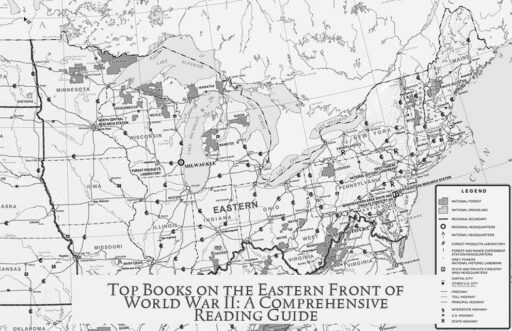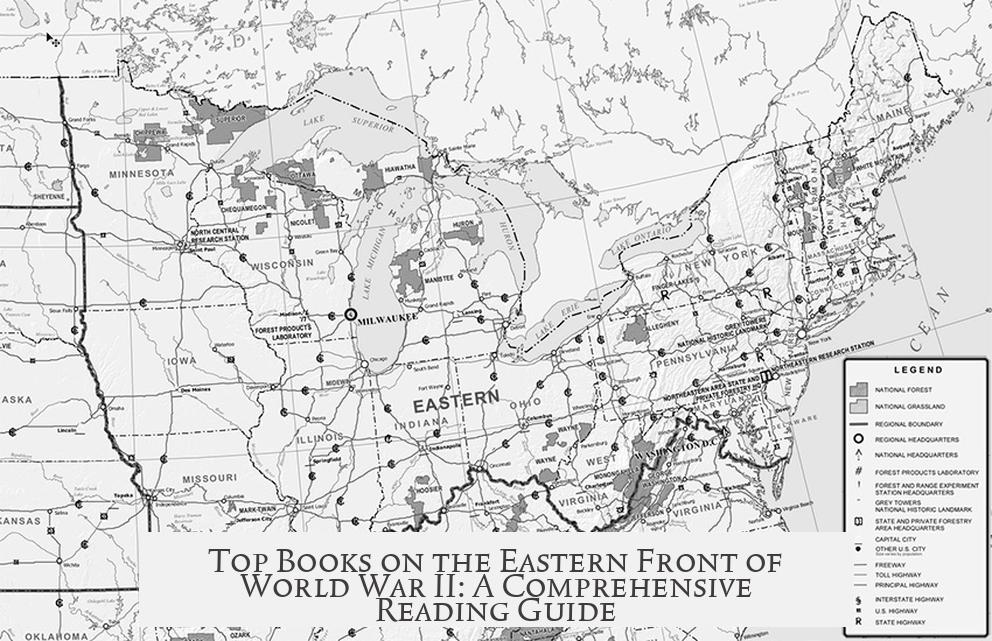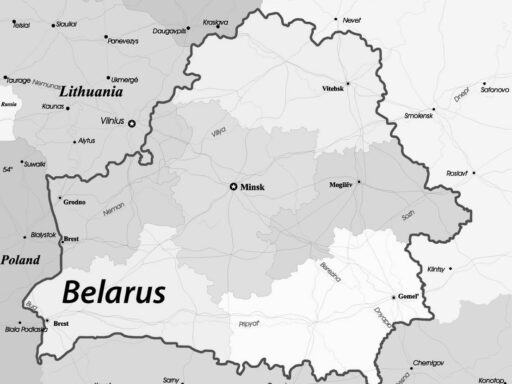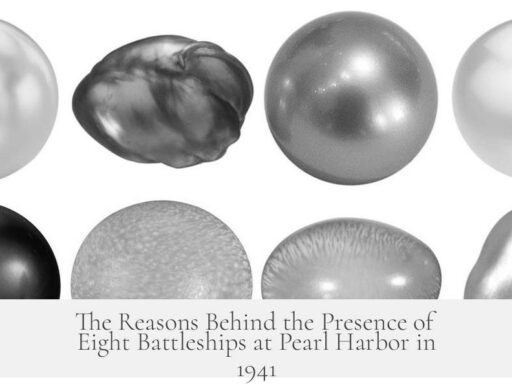Good books on the Eastern Front of World War II cover broad overviews, detailed military history, and specific battles. The historiography has improved significantly since the 1990s, incorporating Soviet archives and fresh research beyond earlier works reliant on German sources. Several authors and books stand out for different levels of detail and focus.
The historiography shifted after 1990 when Soviet archives became more accessible. This changed the understanding of the Eastern Front, adding complexity and new perspectives. Earlier works mainly based on German accounts are now considered limited. Memoirs and diaries offer personal insights but are not the main focus here.
For those new to the subject, Richard Overy’s Russia’s War offers a concise and accessible overview. It frames the conflict clearly while covering key events with solid scholarship. Stephen Fritz’s Ostkrieg provides a bit more depth, especially on the war’s brutal aspects. These two books serve well as starting points.
More comprehensive and authoritative accounts often credit David Glantz and Johnathan House’s When Titans Clashed. This detailed work examines operational and tactical aspects extensively, including unit movements and engagements. It has shaped much modern research and remains a key reference. However, beginners may find its density challenging.
The Red Army’s role receives dedicated study, notably through Alexander Hill. His History of the Red Army belongs to the Cambridge series on World War II armies. It offers insight into its organization, doctrine, and evolution. Hill also produced a compelling photo history of the Eastern Front, bringing visual context to the conflict’s vast scope.
David Stahel focuses on the German side, especially the first 18 months of the war. His works on Operation Barbarossa and the 1941 campaigns highlight German strategies and challenges. Stahel’s research clarifies the initial advances and subsequent hardships faced by the Wehrmacht. His books are valuable for early Eastern Front campaign studies.
Narrative histories by Anthony Beevor, especially on the Battles of Stalingrad and Berlin, are known for vivid storytelling. Beevor’s works appeal to general readers but have faced criticism. For example, some myths about Stalingrad persist in his account, so his books should be supplemented by other research for accuracy.
Readers should avoid John Mosier’s works on the Eastern Front. His interpretations widely deviate from established facts and distort historical reality, making his books unreliable for serious study.
For specialized or battle-specific studies, Prit Buttar writes thorough accounts on individual Eastern Front battles. Robert Forsyth’s work on the Stalingrad airlift offers detailed operational focus. Russian historian Alexey Isaev has contributed notable research, including a respected English translation of his study on Stalingrad. His scholarship is increasingly recognized in Western academia.
Alexander Statiev provides an engaging view of less covered topics, such as mountain warfare in the Caucasus and postwar resistance in Ukraine. His books expand understanding of the wider Eastern Front context and its aftermath.
Additional resources are available on the r/AskHistorians subreddit booklist, where curated guides include diverse materials on the Eastern Front. This online collection helps readers find specialized works and further reading beyond popular titles.
| Author | Key Book(s) | Focus |
|---|---|---|
| Richard Overy | Russia’s War | Entry-level overview |
| Stephen Fritz | Ostkrieg | Detailed overview |
| David Glantz & Johnathan House | When Titans Clashed | Detailed general military history |
| Alexander Hill | History of the Red Army; Photo History of the Eastern Front | Red Army focus, visual history |
| David Stahel | Operation Barbarossa and early campaigns | German early-war campaigns |
| Anthony Beevor | Battle of Stalingrad; Battle of Berlin | Narrative battle histories |
| Prit Buttar | Various battle studies | Specialized battle accounts |
| Robert Forsyth | Stalingrad Airlift | Operational study |
| Alexey Isaev | Stalingrad | Russian perspective |
| Alexander Statiev | At War’s Summit | Caucasus campaign, insurgency |
- Historical research on the Eastern Front improved post-1990 with Soviet archives.
- Overy and Fritz offer solid introductions.
- Glantz and House provide the definitive detailed military history.
- Hill excels on the Red Army’s role and visual narratives.
- Stahel covers early German campaigns thoroughly.
- Beevor’s narratives are approachable but need supplementing.
- Specialist works by Buttar, Forsyth, Isaev, and Statiev cover battles and regions in depth.
- Avoid Mosier for reliable Eastern Front history.
- Consult online booklists like r/AskHistorians for expanded reading.
Eastern Front of World War II: What Are Good Books on the General Subject?
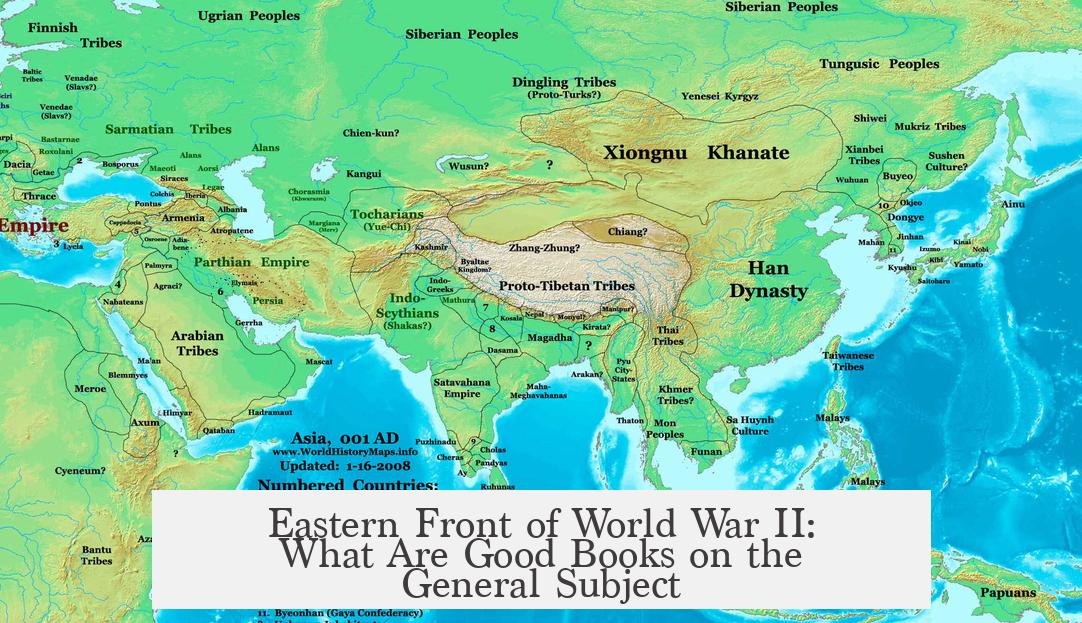
If you want an informed, well-rounded dive into the Eastern Front of World War II, figuring out the best books isn’t just about picking the flashiest titles. It’s about knowing which historians bring reliable, fresh insight and which ones rehash old myths. Let’s uncover the gold standard reads and steer clear of the pitfalls.
The Eastern Front, where the Axis and Soviet powers clashed with ferocity unmatched in modern warfare, is a complex and still evolving historical subject. Sources and perspectives have shifted dramatically since World War II, meaning that choosing the right books requires awareness of these changes.
Why Does Historiography Matter?
From the 1950s to the late 20th century, most books relied heavily on German accounts. That’s like trying to understand a soccer match by only listening to one side’s fans—biased and incomplete. After the 1990s, the floodgates slightly opened to Soviet archives, revealing details behind the Iron Curtain, although access remains limited.
Memos and diaries give personal snapshots from soldiers—valuable, yes, but they often miss the bigger picture. So, if you want a clean, comprehensive story free of personal bias, we’ll focus on authoritative historians instead.
Entry-Level Books: Start Here
- Richard Overy – Russia’s War: This book is a perfect introduction. It’s concise yet thorough, capturing the sweeping events without drowning you in obscure details. Overy is a reputable expert on World War II, balancing readability with accuracy.
- Stephen Fritz – Ostkrieg: If you want a bit more detail but still a manageable entry point, Fritz’s book steps up the complexity while staying engaging.
These books are like the warm-up acts before the heavy hitters. They build a solid foundation without exhausting newcomers.
Deep Dive: Highly Regarded General Histories
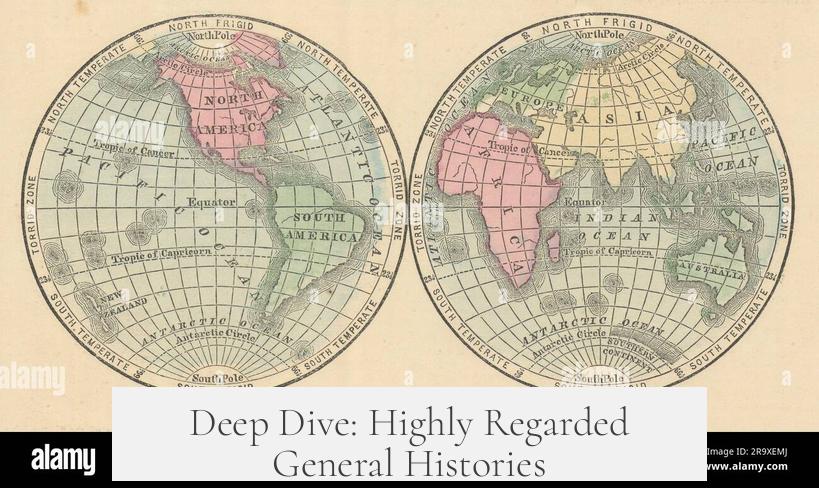
If you’re ready to roll up your sleeves, “When Titans Clashed” by David Glantz and Johnathan House is the heavyweight champion. Updated as recently as 2015, it dives into detailed battles, units, and tactics. You can expect rich facts about operations on all levels—but be warned, newbies may find the extensive military jargon a bit intimidating.
Yet, if you stick with Glantz (he’s practically the dean of Eastern Front historians), you’ll gain a deep and accurate understanding. He’s written extensively, making him an essential author for anyone passionate about the topic.
Books Focused on the Red Army
Curious about how the Soviet forces evolved and fought? Alexander Hill offers a two-pronged approach. His History of the Red Army covers the army’s growth and strategic shifts. Meanwhile, his photo history uniquely captures visual moments that textbooks can’t convey, offering a vivid picture of the Eastern Front’s brutal reality.
The German Perspective & Early Campaigns
When you want to understand Germany’s initial pounding thrust, David Stahel’s books are your go-to. He specializes in Operation Barbarossa and other key campaigns of 1941 through early 1942. His well-researched works avoid the usual clichés and provide fresh insights into German operational plans and failures.
Narrative Histories: The Human Drama
Anthony Beevor writes with a storyteller’s flair, bringing to life epic, pivotal battles like Stalingrad and Berlin. His accounts are gripping and accessible but come with a caveat—some historians criticize Beevor’s treatment of Stalingrad for repeating certain outdated myths. So enjoy his style but cross-check if you dive deeper.
Books to Approach With Caution
Not every voice is trustworthy. John Mosier’s works often distort actual events. It’s best to avoid his books if you want a historically accurate picture of the Eastern Front. Don’t fall for the flashy writing if the facts are shaky—there’s no substitute for sound scholarship.
Specialized Studies for the Enthusiast
- Prit Buttar focuses on detailed, lesser-known battles with sharp analysis. If you want specifics beyond well-trodden ground, he’s a great choice.
- Robert Forsyth
- Alexey Isaev
- Also, Alexander Statiev offers fascinating studies of fighting in the Caucasus Mountains and the postwar insurgencies in Ukraine — topics rare in Western accounts.
These specialists help fill gaps and bring nuance to specific episodes and regional conflicts inside the larger Eastern Front narrative.
Beyond Books: Online Resources
For those who love exploring, the r/AskHistorians booklist is a treasure trove. It updates regularly and points you to a wide variety of credible books and articles on the Eastern Front. Perfect if you want to branch out beyond this post.
Wrapping Up the Reading List
The best approach is to start with Richard Overy or Stephen Fritz for a solid overview. Then, if you want the full military complexity, move on to Glantz and House. Supplement with Hill and Stahel for the Red Army and early German campaigns, respectively.
If narrative style is your thing, Beevor’s gripping stories will engage but keep a critical eye. Avoid John Mosier due to credibility issues. For deep dives, specialists like Buttar, Forsyth, and Isaev broaden your perspective. And don’t forget the digital goldmine of r/AskHistorians for continually updated resources.
So, are you ready to crack open one of these books and understand how one of the bloodiest fronts in history truly unfolded? The right book can reveal not just battles and strategies but the human cost and lessons that remain painfully relevant.
What are some good entry-level books on the Eastern Front of World War II?
Richard Overy’s *Russia’s War* is a short, clear introduction to the key events. Stephen Fritz’s *Ostkrieg* offers a slightly more detailed overview for readers seeking more depth early on.
Which books give detailed accounts of Eastern Front battles and units?
David Glantz and Johnathan House’s *When Titans Clashed* is highly detailed and influential. It covers many specific units and engagements but may be complex for beginners.
Are there recommended books focusing specifically on the Red Army?
Alexander Hill’s history of the Red Army in the Cambridge series is well-regarded. He also created a photo history of the Eastern Front that offers a visual perspective.
What books cover German campaigns during the early war years on the Eastern Front?
David Stahel has written extensively on the German army’s operations in 1941 and early 1942, including his well-known book on Operation Barbarossa.
Can you suggest reliable authors for detailed studies of specific battles?
Prit Buttar writes on various specific battles. Robert Forsyth covers the Stalingrad airlift. Alexey Isaev offers well-regarded Russian perspectives. Alexander Statiev covers Caucasus fighting and postwar insurgency.
